Interview with Rebecca Tiger
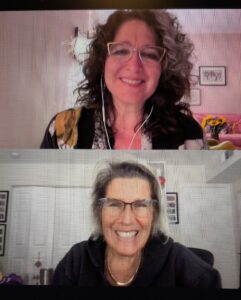
Rebecca Tiger is a new and powerful voice in the world of flash fiction and nonfiction. I was totally blown away by the first of the pieces I read of hers–Zaftig (you can hear her read it by clicking below)–and had to connect with her! I am so glad I did! Rebecca is a sociology professor who has recently incorporated creative writing into her teaching. How exciting for her–and her students! I loved hearing about her journey. I think you will too!
Diane: Welcome, Rebecca! It’s so great to meet you finally!
I remember first being introduced to your work. I read “Zaftig,” your amazing flash nonfiction piece in the wonderful journal Bending Genres.
LISTEN TO REBECCA READ ZAFTIG!!!
I write lots of book reviews, but I’ve never felt called to do a review of a short piece—until yours! It moved me so much. I submitted the review to a few journals, but looked for your email and sent it to you in case it didn’t get picked up. (Thank you, Tiny Molecules for publishing it! You all can read it by clicking on the link!)
Rebecca: It was so lovely when I received that. I was blown away.
Diane: I’m so glad! I related to that story so deeply–and to your experiences, some of which we share: we both have connections to men who are currently or formerly incarcerated, and I discovered you’re a sociologist and so is my son. So I was like, “Wow, look at this.”
I would love to hear more about your life and all the things you do.
Can you start with your family and growing up? You write a lot about your mom in a memory care facility.
Rebecca: She was in a memory facility for 13 months. She died last year of cancer.
My parents were an odd mix. I wouldn’t say it was a mix that necessarily worked a lot of the time, but they were a very interesting combination.
My dad, who died a year before she did, was Jewish, Harvard educated, Harvard Law School. And my mother grew up in a small coal mining town in West Virginia. She didn’t go to college. She was one of a few people who got out of that town. She took a bus to DC and was in the first year of the Peace Corps. Her parents were in their teens and went to a sanitarium for TB. She was never raised by them but by a series of grandparents. This summer I’m planning to go to Thomas, West Virginia, where she’s from, which has a population of about 600 people.
“I Describe Myself As a Sociologist of Knowledge”
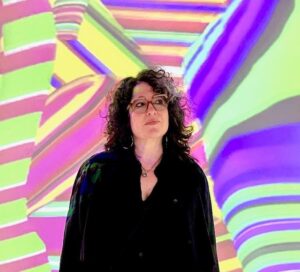 For a while, there was a lot of conflict between this highly educated man and my mother, who had very interesting experiences but not book smarts. Both of my parents emphasized education, but I think one of the reasons I became a sociologist or do the kind of writing I do now, is that I was always watching, always observing. I was trying to figure things out. What are the adults up to? What is their connection to each other? How can you be in the world?
For a while, there was a lot of conflict between this highly educated man and my mother, who had very interesting experiences but not book smarts. Both of my parents emphasized education, but I think one of the reasons I became a sociologist or do the kind of writing I do now, is that I was always watching, always observing. I was trying to figure things out. What are the adults up to? What is their connection to each other? How can you be in the world?
Diane: Tell us about your experiences with prisons. Is that your area of study?
Rebecca: I studied English as an undergraduate. I was into literature and into analyzing things, analyzing texts. In some ways, that’s the kind of sociologist I became. I describe myself as a sociologist of knowledge. I’m interested in how we understand things and then what practices come from those understandings. I took a Sociology of Punishment class in graduate school just by chance, and that really changed my trajectory. I had been working in public health prior to that, doing HIV/AIDS and drug addiction research. I assumed I was going to do a PhD in some topic related to that and then go on and work at a public health or research organization getting grants. But I took the Sociology of Punishment class with an amazing scholar, who also ran the Department of Corrections at some point for the city. He had a very practical view of prisons, but we also read the classics, Foucault and others. A lot of what we were learning really resonated with me.
“The Punishment Stuff Is My Sort of Specialty. I Teach About Deviance and Social Control”
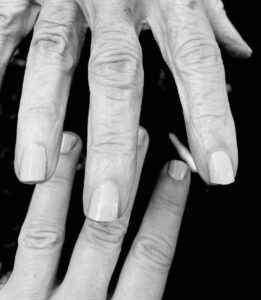 I ended up writing a dissertation, which became a book with NYU press, Judging Addicts, about drug courts and coerced drug treatment in the criminal justice system. I was mostly interested in the history of the idea of addiction. And this is where being a sociologist of knowledge comes in, how that idea leads to certain hybrid practices like punishment and treatment combined, which is one of the ways we deal with drug users in the criminal justice system.
I ended up writing a dissertation, which became a book with NYU press, Judging Addicts, about drug courts and coerced drug treatment in the criminal justice system. I was mostly interested in the history of the idea of addiction. And this is where being a sociologist of knowledge comes in, how that idea leads to certain hybrid practices like punishment and treatment combined, which is one of the ways we deal with drug users in the criminal justice system.
So, the punishment stuff is my sort of specialty. I teach about deviance and social control. Thankfully, at my job at Middlebury, we’re allowed to move around. Now I teach a course on celebrity. I got there partly through doing some research about how celebrity gossip blogs depicted drug-using celebrities. I was really interested in both the official and the popular places where ideas about deviance were being communicated to audiences. I also became very interested in education and higher education in prisons and jails and did a number of training programs including Temple University’s Inside Out program, which is based on a model that you go in and teach in a prison and half of the students come from whatever institution you’re teaching at, and the other half are inmates. And I should say there’s a whole debate about what to refer to people, but I actually, I think inmates is fine.
Diane: There’s a debate about what to call almost anything and everything.
Rebecca: I think it doesn’t change what happens in these places, which is people are cut off and often dehumanized.
“I Started Going into Prisons with An Eye Towards Teaching”
 I went to this conference on higher education in prison, and there were some academics/activists, and they went on this whole thing about language. “You can’t have dehumanizing language and you can’t call them prisoners or inmates. You can call them people with felonies.” The next day we had a session with some women who were working on their PhDs in a women’s prison. They were there on felony convictions. And one of them just looked at the camera and said, “Call me a prisoner. That’s what I am, being held against my will. Don’t try to make it nice.” I think something along those lines also appears in “Zaftig.”
I went to this conference on higher education in prison, and there were some academics/activists, and they went on this whole thing about language. “You can’t have dehumanizing language and you can’t call them prisoners or inmates. You can call them people with felonies.” The next day we had a session with some women who were working on their PhDs in a women’s prison. They were there on felony convictions. And one of them just looked at the camera and said, “Call me a prisoner. That’s what I am, being held against my will. Don’t try to make it nice.” I think something along those lines also appears in “Zaftig.”
Diane: It does.
Rebecca: So, I started going into prisons with an eye towards teaching. I felt that because I was teaching about it, I had an obligation to go in and see what it’s like in there.
Diane: You went and taught in prison. What did you think?
Rebecca: It was intense. It was amazing. It was all the emotions that you could imagine. And I wrote about it some in “Zaftig” because there were also these small moments where we’re sitting eating lunch, baloney with Wonder Bread, and we’re putting chips in it and talking about how the sandwich tastes. There were these down times where we could just talk without there being some pedagogical purpose.
I have taught in a jail near in Rutland, Vermont, which is about 35 miles south of Middlebury. That’s different because, like most rural jails, the people are there for a short period of time and then going somewhere else. But in the end, it’s the kind of same thing, which is these people are shut up in there and they don’t want to be and that affects, I think, every interaction. Senses are heightened when you’re in a situation like that.
“So Much of My Relationship to Food Was About My Body and Hating My Body and Feeling that Food Was an Enemy. I Mean, This Is the Story of Women’s Lives”
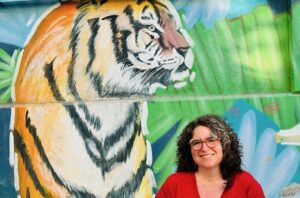 Diane: We also published “Somewhere,” a wonderful piece of yours in Emerge Literary Journal about another lock away situation—your mom being in a memory care facility.
Diane: We also published “Somewhere,” a wonderful piece of yours in Emerge Literary Journal about another lock away situation—your mom being in a memory care facility.
Rebecca: I wrote that story in a summer writing class. The teacher had asked us to write about food and our food culture, and I realized that so much of my relationship to food was about my body and hating my body and feeling that food was an enemy. I mean, this is the story of women’s lives.
Diane: It’s so terrible. Such a waste of time and energy and everything else.
Rebecca: Yeah, when I was sitting with this one guy in the prison having the bologna sandwiches, he referred to himself as a foodie. That stuck with me. What does it mean to be a foodie in prison? People are like, “I don’t have the right spoon or the right pan,” but he’s a foodie. And we talked about what that meant and how he got to exercise his food creativity in prison. I wrote about that, and then I wrote about my mom. My mom was so thin before she died. She lost about 60 or 70 pounds, but she would refer herself as a fatty, and she would touch her stomach. I gained weight from menopause and caring for my mother. When I got home at the end of the day dealing with her, I didn’t feel like going and walking 10,000 steps.
“I Knew I Wanted to Tell a Story. I Felt Like I Needed to Get to the Texture of Things”
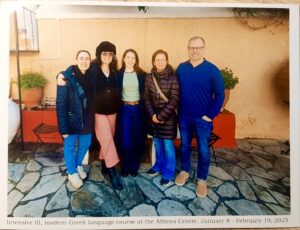 I’m working with Arya Samuelson, who’s a fabulous writer. She is helping me put together a collection of these stories. I wanted the link to be bodies and control.
I’m working with Arya Samuelson, who’s a fabulous writer. She is helping me put together a collection of these stories. I wanted the link to be bodies and control.
For the longest time, I tried to figure out the logic for the collection. Should it be the geography of the facility? And then Arya said I should weave in my sociology, who I am as a sociologist, not make it an academic book, but weave in what I am drawn to—institutions and how people express individuality and agency within them.
Diane: That sounds fabulous. And you definitely need to put your stories together. We need you to!
Rebecca: I’m going to a residency at NES in Northern Iceland in April.
I’m hoping to spend that time working on it.
Diane: What drew you to move away from scholarly writing and into more creative non-fiction and fiction?
Rebecca: I was at this kind of crossroads. I just wasn’t feeling like I wanted to do another scholarly study. I had become interested in documentary film and took an intensive workshop at the Duke Center for Documentary Studies. Documentary filmmaking is very hard, it felt too exhausting. But I knew I wanted to tell a story. I felt like I needed to get to the texture of things. So, I just started writing. That’s where I could get at that micro level of what happens when people misunderstand each other. That seems to be something that appears in a lot of my stories.
And I just loved it. I just loved it.
“I Don’t Take Rejection Personally. I Have a Moment and Then I Let It Go”
 In academia, you start a project and five years later you’re going to surface with something. But flash is different. I wrote Zaftig in a little over a week, and then it got accepted and was out in the world so quickly. Another thing I love about flash is the community. I get to interact with the people who are really lovely, very supportive, who cheer each other on and it’s a beautiful thing. And it’s very different than academia.
In academia, you start a project and five years later you’re going to surface with something. But flash is different. I wrote Zaftig in a little over a week, and then it got accepted and was out in the world so quickly. Another thing I love about flash is the community. I get to interact with the people who are really lovely, very supportive, who cheer each other on and it’s a beautiful thing. And it’s very different than academia.
Diane: You’re writing longer stories now.
Rebecca: A little bit longer. I love flash and what it can do. I teach a course called Writing Flash Sociology. It’s so much fun to teach. The syllabus is constantly changing. It’s like something amazing came out today. Look at this. I put something of yours in this semester.
Diane: My Brevity thing.
Thank you.
Rebecca: I will always love flash. I do still write that, but I am trying to work on what it means to set a story, create a pace, be a little slower with character development.
Diane: It’s a very different animal.
I have to say, I am seeing your work everywhere! Congratulations!
 Rebecca: Thank you! I just send stuff out all the time.
Rebecca: Thank you! I just send stuff out all the time.
I don’t take rejection personally. I have a moment and then I let it go.
Diane: Do you have a favorite rejection?
A funny one? Your worst rejection?
Rebecca: I just got rejected from a literary magazine two years after submitting something. They said: “Unfortunately, we can’t use this. We’re sorry it took so long.” I’d forgotten about it! What’s so interesting is that there are publications that treat you like they’re doing you a favor by reviewing your material. We need them, and they need the writers.
“Teaching Writing Is What I Want to Do”
Diane: Absolutely. We need each other.
I have to share my favorite rejection because it was so bad: “Though your story was short, it felt long to us.” That’s a personal rejection.
Rebecca: That is hilarious. They actually took time out of their lives to insult you.
Diane: Isn’t that the greatest? I love it and I don’t remember who sent it, and I’m dying to know.
So are you moving away from academia?
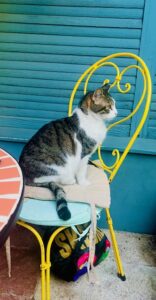 Rebecca: Well, I do love teaching. And I love teaching creative writing. We had a public reading at the end of the semester for my students. It was a huge success. About 50 students showed up, the students cheer each other on, they were laughing, they were crying. It’s really one of those moments that reminds me that teaching writing is what I want to do. I want to keep teaching creative writing.
Rebecca: Well, I do love teaching. And I love teaching creative writing. We had a public reading at the end of the semester for my students. It was a huge success. About 50 students showed up, the students cheer each other on, they were laughing, they were crying. It’s really one of those moments that reminds me that teaching writing is what I want to do. I want to keep teaching creative writing.
Diane: It’s so great that you have found a way to combine both worlds.
Rebecca: It is really great! When I teach the writing courses, it keeps me paying attention to what’s being published. I teach different craft elements. Sometimes I’ll be reading the literary magazines and something new will catch my eye and I use that in a class. We all work together and try to create a story on our own that we share with each other. The writing is very exciting. The students at first are wary, but then they get into it. I love seeing them excited to produce their own work. Some of them are writing really beautiful stuff which I’m encouraging them to send out.
Diane: I love that you’re encouraging young people to tell their stories. Thank you for sharing yours with us.
Thank you for reading, everyone.
As always, I’d love to hear from you. Please write a comment or send me an email.
See you soon!
XOXOXO
Diane




Absolutely fascinating! I love, love, love your interviews, Diane!!
Thanks so much, Sherry! Love, love, love you!!
Rebecca’s Tiger’s insightful presentation of her family background and how her interests evolved were so interesting. I enjoyed your interview with Rebecca very much.
Thank you, Linda! I’m so glad you enjoyed it! I think you would love reading some of Rebecca’s writing too. It’s very powerful!
Great interview, Diane! I’m an admirer of Rebecca Tiger’s work, too.
Oh, thanks Sarah! Good to hear from you!!! Rebecca is a force!!
I loved everything about this interview!
Constance! Thank you–and sooooo wonderful to hear from you!! XO